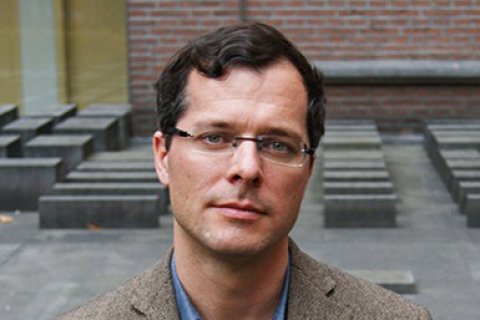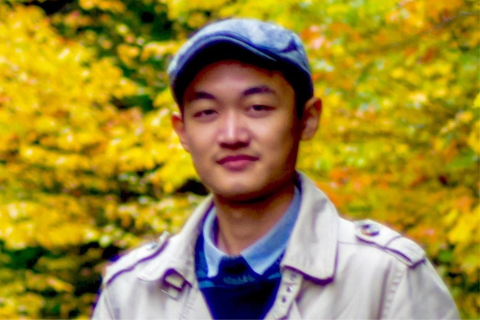Testimonials
Leyla Tanbay chose the research MA in Utrecht for the Professors
Birgit Meyer is Professor of Religious Studies

"In the early 21st century, religion appears to be a far more prominent and contested phenomenon than envisioned by theorists who understood modernity in terms of increasing secularization. At Utrecht University we take part in rethinking the study of religion from an interdisciplinary angle and against a broadened global horizon."
Read more
"Our staff members work on a broad set of exciting case studies, including commotions around blasphemy, contestations around religious architecture, the rise of religious reform movements, and new religious media. In my own work I explore the role of the body, sensations and emotions, and all sorts of artefacts and materials, by studying the politics and aesthetics of religious world-making. We are happy to welcome you into our vibrant research community."
Rashmi Shetty works as an Associate Editor with Koninklijke Brill

"I completed my RMA in Religious Studies in the summer of 2021 with a cum laude and thesis titled “Neo-Hindutva Affective Publics: An Exploration of Meme’ing Cultures of the Indian Right Wing,” which won the Faculty of Humanities Thesis Award. Although I have always been acutely interested in the changing digital landscape given its political significance in India, it is through the encouragement and feedback I received on an early paper—on atheism and meme culture—that my interest in play-based artefacts and fun practices on the Internet matured into a serious topic."
Read more
"Given the immense freedom the RMA offered, I was able to gradually carve my own research path by taking classes from various programmes, research schools, and even propose a tutorial (on social media analysis), all of which contributed to a truly interdisciplinary and relevant thesis.
Currently, I work as an Associate Editor (Religious Studies and New Testament) with Koninklijke Brill (Leiden), one of the oldest academic publishers in the Netherlands. I am fortunate that this role allows me to still engage with the religious studies scholarship that I enjoy immensely, while also honing my professional skills in project management, publishing, and open access, among others. Although I did not follow a strictly academic trajectory, the process of writing a RMA thesis, publishing a book review in a reputed journal, and assisting on a book project during my time at Utrecht University have been pivotal in giving me the confidence and competitive advantage to navigate and fulfil my professional aspirations."
Christian Lange is Professor of Islamic Studies

"In recent years, the study of Islam has been greatly enriched by impulses from the anthropological, sociological, political, and aesthetic study of religion. The research Master Religious Studies at Utrecht University is a great forum for staff and students interested in Islamic Studies to combine text-based research with such novel, exciting methodologies and theories."
Read more
"In doing so we build on the expertise of our staff in the study of early, classical, modern, and contemporary Islamic traditions, from the Koran and Hadith to Islamic jurisprudence, theology, mysticism, philosophy, and the reform discourses of recent times. If you want to delve deeply into the foundational texts and practices of Islam and learn how to interpret them by applying up-to-date research approaches, Utrecht University is the place for you!"
Chunrong Zhao did a BA in anthropology and wanted to further explore religious material culture and religious practices

"I chose this programme because of my research interests in religious material culture and lived religion. The programme fit my research interests perfectly and was also an ideal platform to develop my academic skills in a holistic way. This programme gives each student enough space to develop freely according to their curiosity and interests."
Read more
"As an interdisciplinary platform, the programme allows students to equip themselves with diverse approaches to the study of religion. Special emphasis is on the integration of cultural context and theoretical development. Furthermore, many of the topics we discuss in classes are closely related to contemporary world affairs. The concern for social relevance strengthens our sense of social responsibility and makes us aware of the many modern contexts in which religion has not disappeared but rather transformed and continues to impact lives.
Thanks to the professional training I received in this programme, I successfully completed my thesis and graduated on time in 2019. In my thesis, I propose a new research framework—the translocative framework—to capture and analyze the eclecticism in Gandharan Buddhist material culture and to criticize the cultural essentialism in colonialist interpretations. I am now conducting PhD research at the same department in Utrecht. My research is about the contemporary convergence of Christianity and modern bodybuilding in America, and how such a convergence mediates between the Christian religion and secular society in urban contexts. In the future, I hope to continue my academic career as a lecturer and to specialize in the religious roles of bodily practices including sports and dance."
Isabelle Best works as Junior Curator Surinamica at the Allard Pierson

"I chose this two-year rMA not only because it offered an abundance of learning opportunities through its extensive range of courses, but also because it provided me with the freedom to explore and participate in various academic activities. From immersive tutorials on Indigenous Religion to engaging extracurricular seminars with the Pressing Matters project, NGG and NOSTER conferences, and a transformative internship, this programme has thoroughly prepared me for a versatile professional career in both academic and non-academic spheres."
Read more
"Drawing from my background in Latin-America Studies and Education, I entered the programme with a deep fascination for the intercultural dimensions of religious and spiritual expressions within diverse Mid- and South-American communities worldwide. Guided by a committed and nurturing faculty, I found myself gravitating towards the study of material culture as a lens through which to explore my field of interest, now narrowed down to the Dutch context. This exploration culminated in a rewarding internship with the National Museum of World Cultures (NMvW).
As a student of religion, I have come to understand the paramount importance of effectively communicating the intricate academic debates we engage in to a wider, non-academic audience. It is through powerful institutions such as the museum that I belief we might convey the relevance of these complex discussions.
Notably, my internship at the museum directly paved the way for my current position as the Junior Curator Surinamica at the University of Amsterdam's heritage collections, housed in the Allard Pierson. As I approach the completion of my research Master's degree, centered around my thesis on the Indigenous Surinamese diaspora in the Netherlands and their entanglements with the cultural heritage held by the NMvW, I realize that this rMA programme has equipped me with the requisite confidence, knowledge, and skills to pursue my aspirations at the vibrant intersection of academia and the cultural sector. As I embark on the next chapter of my career, I am grateful for the solid foundation and invaluable experiences this program has provided, propelling me towards a future where I can contribute meaningfully to the understanding and appreciation of diverse religious and cultural traditions."
Jip Lensink is a PhD candidate at Utrecht University

"During my bachelor’s in Cultural anthropology at Utrecht University I realized that I was interested in religion. That is why I visited the Master’s Open Day of the Research Master Religious Studies and after that, I felt so happy! I enrolled in the programme because of the close-knit atmosphere, the involvement of teachers, and the study programme itself with so many possibilities (fieldwork, staying abroad, elective courses, internship)."
Read more
"In my first year, I enjoyed a diversity of high-quality courses and became embedded in the warm research community consisting of fellow students, professors, staff, and visitors. We improved our writing and presentation skills and became part of a research community by participating in colloquia, seminars, and conferences. I chose several electives and set up a tutorial about a topic of my interest. I developed my research proposal and even followed a course in Rome! In my second year, I conducted anthropological fieldwork in the Moluccas, Indonesia. I spent four months abroad, studying the native language. Back home I wrote the MA thesis “Traditional Tunes Transformed,” which is about the relation between theology and lived religion in traditional church music in the Moluccan Protestant Church.
Looking back I have the sense that these two years were a period of academic development and personal growth. The Research Master Religious Studies offers an extensive network of people, the teachers are really good, and the quality of the courses is high. Students learn to look at the world around them in a nuanced way; they are equipped with skills that help them contribute to society. We discussed complex topics in the courses, closely read diverse academic texts, gave presentations, wrote papers, and, finally, conducted research ourselves.
During the MA programme I realized I would like to do a PhD to continue my career in academia. At the moment I am living this dream! That would never have become possible without the support and inspiration from the students and professors of Religious Studies!"
Leon Kooijmans just defended his MA thesis

"I chose the graduate degree programme in religious studies because of my interest in religious practices and ideas, both historically and in the contemporary world. The programme at Utrecht University appealed to me because of its interdisciplinary approach and the variety of courses on offer."
Read more
"I was a bit anxious when starting the first courses but quickly came to feel at ease thanks to the warm atmosphere of the department and the kind teachers who made much effort to engage with and support their students. In addition to learning more about religion, this master’s degree provided opportunities to develop critical thinking and gain organizational skills and experiences that help prepare me for my future career. For instance, in my second year, I did an internship at Platform INS, an NGO based in Amsterdam that focuses on interreligious dialogue. I was able to put what I learned during the courses into practice and engage religion from a different perspective.
During the master’s there are ample possibilities to explore topics students find interesting. I have been fascinated by religion in relation to secular contexts. This led to me writing a thesis about Christian atheists who take inspiration from Christian traditions, texts, and practices, while simultaneously embracing atheism.
I finished the programme in 2022 and intend to continue studying religion by applying to PhD programmes. Whether continuing in academia or elsewhere, I feel that this programme gave me the right skills and tools for my career."

